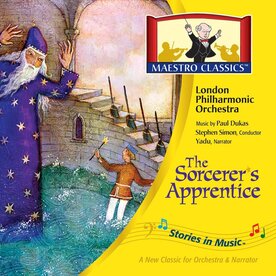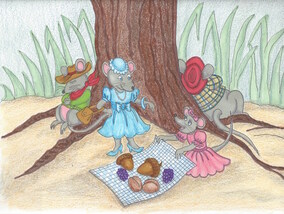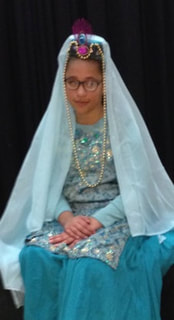
I admire composers who have such a command of the colors and sounds of the orchestral instruments that they can arrange and use them in their musical compositions to conjure up images for us in our minds. I also admire artists and animators who are especially equipped to use their imaginations and skill to give the listening and viewing public unique visual interpretations of classical Program Music. In fact, those artists can take almost any music and use it to tell some kind of visually appealing story. Musical underscoring helps move the plot along in a story or theatrical production. Directors of plays have long used the music of the classical Masters (Program Music or not) to "up" the theatrical appeal of their shows.
It's all Show Biz. We like to be entertained. And we like best what we know. We like to have the music used to underscore movies and theater be what will carry us away into the world of the story. It may be heroic and action packed. It might be spooky and suspenseful. It may transport us to exotic locations. It may reflect the popular music of the day. It may also educate us about music of a certain historic period. Modern composers may want to find their unique voices when composing scores today, but they also want to build upon the fantastic examples from the past. Even the legendary film score composer John Williams (b. 1932) used themes for "Star Wars" (1977) that sound like they are heavily influenced by Paul Dukas' "The Sorcerer's Apprentice." It's all right. Composers "borrow" ideas from each other all the time.
In my own small way, I wanted to give a salute to the famous Norwegian composer Edvard Grieg (1843-1907) when I wrote the mini-musical "The Three Billy Goats Gruff." He wrote incidental music for a play by Henrik Ibsen in 1876. These short musical pieces vary in style and help illustrate the moods and activities of the protagonist "Peer Gynt." I used little snippets of some of these pieces to add flavor to the songs from my little mini-musical. Perhaps you will recognize them. Enjoy.


 RSS Feed
RSS Feed